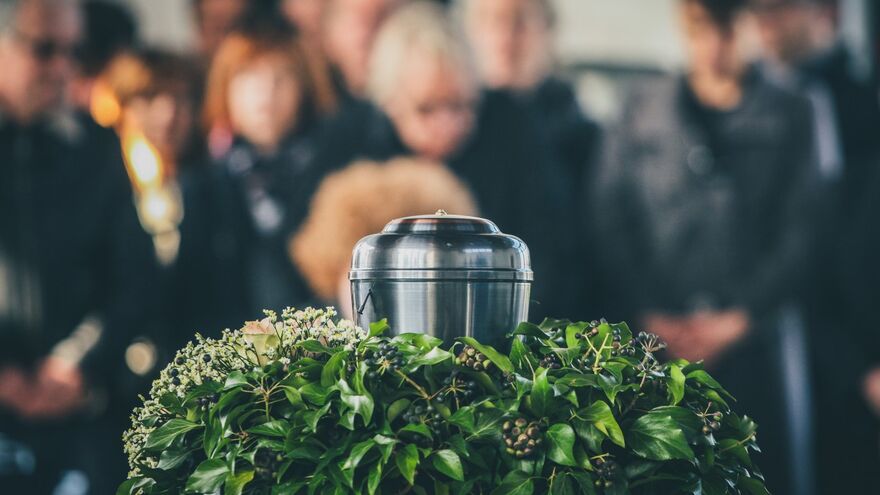Disputes over who should keep the ashes of a loved one or where those ashes should be scattered unfortunately do arise, so it is important to understand who actually has the right to a deceased’s ashes.
The Deceased’s Choice as to Cremation and Who is Responsible for Arranging the Cremation?
It is possible to include in a Will whether you would like to be cremated or buried. However, the Executors you choose do not have to follow this; it is simply a wish that is usually followed. The reason this wish does not have to be followed is because your body cannot be owned. The ownership of your own body ends with your death. The purpose of a Will is to deal with your property.
There are exceptions to this rule. For example, if a body has been altered by a means involving the application of skill such as through preservation or dissection then a body may become property and can be owned.
If the deceased left a Will appointing Executors to administer their estate, then it will be the responsibility of the Executors to arrange for the cremation of the deceased.
If the deceased does not have a Will, they will have died intestate. There are rules that determine who is entitled to administer the estate and these are the intestacy rules. The person with authority under the rules to administer the estate would be the person with responsibility to arrange for the cremation of the deceased.
If the deceased dies intestate and no one has applied for a Grant of Letters of Administration (similar to a Grant of Probate as it confirms that the person with authority under the intestacy rules can administer the estate) then the person responsible for arranging the cremation will be the person with the highest right of administration – you would need to check the intestacy rules and it would be the person highest on the list. For example, the first person able to apply for Letters of Administration would be a spouse and if there is no spouse, the next eligible person would be a child of the deceased – the list goes on.
If there is no one willing or able under the intestacy rules, the responsibility for arranging the cremation would fall on the householder in whose house the person died or failing that, whoever has possession of the body (i.e. the hospital or coroner). The last resort would be the local authority.
If the deceased is cremated, their ashes become property that is capable of being owned. This is because the cremation is considered an application of skill.
Who Has The Right To The Ashes?
The person who is responsible for arranging the cremation, either under the Will or through the intestacy rules, has the right to possess the deceased’s body for the purpose of making those arrangements. This possession right begins at the time of death.
Cremations are governed by law and an application must be made for a body to be cremated. The application is either made by the executor or a near relative (widow/er, parent, child or any other relative residing with the deceased). Someone else can apply for cremation, as long as the medical referee on application is satisfied with the reasoning given by that person. For example, this could be a cohabitee of the deceased that does not fall into the category of executor or near relative.
The person applying for cremation is the first person who has control of the ashes. After cremation, the Cremation Authority must dispose of the ashes in line with instructions given on the application. If there are no instructions or the ashes are not collected, then the Cremation Authority must dispose of the ashes either by burial or scattering.
Ashes do not form part of the deceased’s estate so do not pass in line with the Will or intestacy rules. The ashes are dealt with in accordance with the cremation application and any instructions included.
The applicant for cremation is entitled to possession of the ashes, or whomever the instructions mention.
The courts have stated previously in ashes disputes that the person who has physical possession of the ashes holds those ashes as a trustee and must consider the views of family and beneficiaries when deciding what to do with the ashes.
If there is a dispute over ashes
If you think there is potential for a dispute to arise over who should have the ashes after cremation, it is worth trying to resolve any issues prior to completion of the cremation application so that clear instructions can be included or ideally you are the one to sign the application, meaning you have first control of the ashes.
In some cases an injunction can be sought to prevent a cremation taking place but this can be a costly exercise, both in terms of legal costs and the emotional burden.
If the dispute arises after the cremation has taken place, it can be difficult to resolve these disputes and near impossible if the ashes have been interred without an urn or scattered. If the ashes remain in someone’s possession then mediation is recommended as the quickest route to trying to resolve disputes of this nature. This is because it is generally cheaper than court proceedings but also can be less gruelling on the emotions than court proceedings.
If a compromise cannot be reached, it may be that an application to the court is required so that a decision can be made.
Should you find yourself in a dispute about ashes of a loved one or think a dispute may arise, contact us to discuss the available options to you.
The information on this site about legal matters is provided as a general guide only. Although we try to ensure that all of the information on this site is accurate and up to date, this cannot be guaranteed. The information on this site should not be relied upon or construed as constituting legal advice and Howes Percival LLP disclaims liability in relation to its use. You should seek appropriate legal advice before taking or refraining from taking any action.




